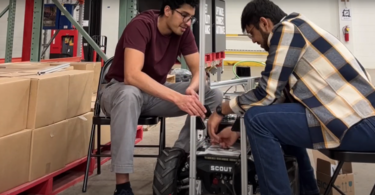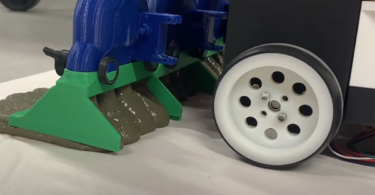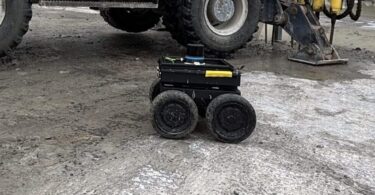We walk through what it’s like to be a Process Automation Field Services Technician at SICK
Refineries, chemical plants, and cement plants operate in extremely challenging environments. The handling of hazardous materials, highly dynamic markets, stiff global competition, and stringent environmental standards are just a few major challenges faced by producers in these industries. See how Ed Pavina, Process Automation Field Service Technician handles this pressure.
Due to the high material throughput in chemical plants, production must be monitored with a high level of accuracy. Likewise, pollutant emissions need to be constantly quantified. Many plants utilize technology from SICK for the reliable measurement of various process gases. But how do you ensure that everything is always running in tip-top shape? Enter stage left – a Process Automation Field Services Technician.
Ed Pavina has been a Senior Field Services Technician with SICK for a number of years. In his time, he has seen it all. Primarily, Ed works in cement plants, chemical plants, and power plants. So what does a typical day look like for someone in Ed’s role?

Ed Pavina, Field Services Technician
A Typical Day
First, Ed connects with the head of production engineering or environmental engineering to discuss what they’d like for him to do on site. Once he arrives on site, he connects with that person again and confirms what he’ll be working on to ensure he understands expectations. After that, Ed gets to work.
“The services I provide could be anywhere from a preventative maintenance call, where the customer would like me to perform tasks on installed SICK equipment to prevent future problems,” Ed said. “Or the call could be related to a problem with the equipment outside of preventative maintenance. I’m called in to help diagnose and fix the problem.”
When conducting preventative maintenance, Ed will typically check over the equipment for any problems that need to be fixed and then often complete filtration replacements for filters for gas screens and rebuild any necessary pumps.
Nationwide Coverage
Process Automation Field Services Technicians at SICK, Inc. conduct work throughout the United States and Canada. Ed himself primarily stays east of the Mississippi River, helping customers in that general region. But he has colleagues stationed in each region to provide necessary services to all customers.

Safety and Emissions Monitoring
Process analyzers within these facilities are vital to the contribution of overall plant profitability, especially regarding operational excellence and safety. They aid in reducing production costs, enhancing product yields, increasing plant safety, and ensuring compliance with local and federal emission regulations. They fulfill vital tasks in different parts of the plant and maximize efficiency and uptime of many process units.
Continuous plant availability and a high level of operational safety are of utmost importance in the process industry, but it is undergoing rapid changes. Plants are becoming more complex, regulations more stringent, and there is an urgent need to find practical solutions for the energy revolution and environmental protection. This is increasing the pressure on plant operators. Cost efficiency is only one aspect for consideration. The other key issue is the safety of humans as well as the plant and equipment.
The equipment Process Automation Field Services Technicians like Ed services help plants in these industries properly determine the composition of production gases and in gas emissions. Certain chemical substances are pollutants that harm the environment and pose a risk to health. These substances are typically produced in combustion processes and escape as exhaust gas through the stack. This is important to know for compliance to all emission regulations. This information also helps the plant know how to best produce product.
To comply with local emission regulations, many plants are using continuous emission measurement systems (CEMS) and data acquisition systems to monitor pollutants. This is the type of equipment Ed provides service to, which could include the MCS100E, MCS100FT, MCS300P, and more. These products all work to provide process control and monitoring the chemical industry, including continuous emissions monitoring at the stack.
Want to learn more about Field Services?





